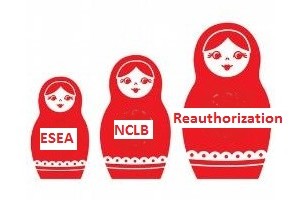No Child Left Behind reauthorization

The 2002 No Child Left Behind Act doesn't have a lot of fans these days. Though it received bi-partisan support when it was proposed by former President George W. Bush, it has lost support from liberals and conservatives alike and has been gutted by a patchwork of waivers given to nearly every state, Maryland included, that allow them to avoid various elements of the law. It did not achieve its goal of ensuring that all students were performing at grade level in reading and math by 2014, and it has become enmeshed in the growing backlash against federal control of education, which has traditionally been a state and local matter.
Years after it expired, Congress finally appears interested in renewing and overhauling the law. Both the House and Senate have passed new versions, but both have real flaws. The changes may not have a drastic impact on Maryland — thanks in no small part to the efforts of Sen. Barbara Mikulski to preserve, for the time being, Title I funding — but they represent a real and worrisome step back from what was the core idea of the law in the first place, which was that all children, no matter where they live, whether they are a disadvantaged minority or disabled, should be given the same opportunity to learn. Giving states flexibility on how to achieve that is well and good, but allowing states to ignore the goal isn't.
Under either the House or Senate version of the reauthorization, some notable aspects of NCLB will stay. Students will still be required to take standardized tests in reading and math and in some grades, science, and districts will still have to report the results. But the strictly defined accountability measures of the federal law would be wiped out in either bill. NCLB was overly formulaic — it defined a "failing" school based on whether it made adequate yearly progress toward improving achievement overall and for subgroups like African-American students or those with limited English proficiency, but the results didn't always make sense in practice. Schools where test scores were improving could be labeled "failing" if they weren't meeting the law's arbitrary targets and thus subjected to drastic restructuring requirements, even though they were headed in the right direction. And some schools were deemed to be failing even though they generally performed well.
That needed to change, but both versions of the reform legislation, and particularly the House bill, go too far in the opposite direction. They not only give states flexibility to decide what to do about schools that fail to make progress, they don't require the states to do anything at all. That likely won't matter much in Maryland, where the idea of accountability was rooted long before NCLB. State officials expect to move forward with tests tied to the rigorous Common Core standards and to use the results to hold schools and, to some extent, teachers accountable. But in other states, where the Common Core has led to a backlash against federal control over education policy (the fact that Common Core was not a federal initiative notwithstanding), it's almost certain to disadvantage students who need the most help.
Of more concern is what the bills would do to federal education funding. The House version contains an alarming provision that would shift Title I money to schools that serve a smaller number of poor students through a "funding follows the student" policy. We certainly support the idea that parents should be able to No Child Left Behind reauthorization - Baltimore Sun:
